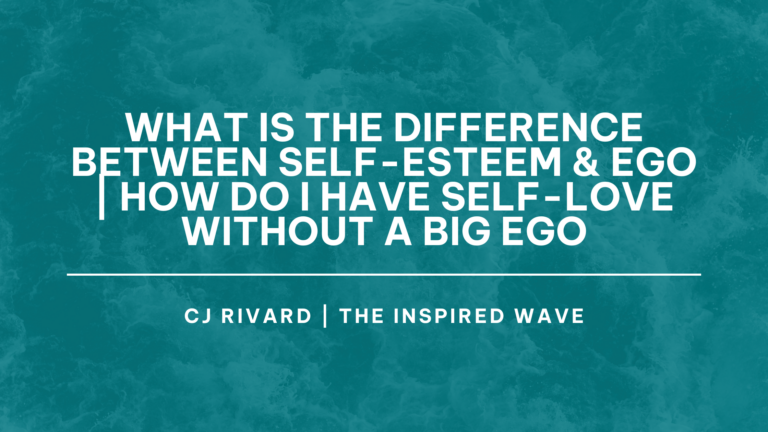Most people confuse healthy self-esteem and having a big ego, and consequently hold themselves back and play small. Understanding the distinction is crucial for personal growth, emotional health, and building healthy relationships. In this article, we’ll explore how to ensure you nurture self-love and self-esteem without fearing that your ego will get in the way.
If you prefer video, I covered this topic here in “Self Love and Self Esteem VS Ego”
What is Self-Love?
Self-love is the foundation for mental and emotional well-being. It refers to the deep, unconditional care, trust, and affection we have for ourselves. People who have strong self-love embrace their strengths and flaws, accept themselves as they are, and move through life with confidence. They don’t rely on external validation or the approval of others to feel complete. Instead, they possess an internal sense of worth that allows them to face life’s challenges with resilience and self-assurance.
Self-Esteem: A Reflection of Self-Worth
Self-esteem is closely linked to self-love but focuses more on how we evaluate our capabilities and achievements. High self-esteem means recognizing your own value without needing to diminish or compare yourself to others. When you have strong self-esteem, you trust in your ability to achieve your goals and believe in your worth regardless of external circumstances. It’s about having a balanced sense of pride in who you are and what you’re capable of, which in turn fuels your confidence.
The Truth About Ego
The word “ego” often carries negative connotations, as it is sometimes associated with arrogance or being conceited. Having a big ego is typically characterized by an inflated sense of self-importance and thinking you’re better than others. People are often cautious in developing their self-esteem for fear of becoming “that person” with a big ego. However, true self-love and self-esteem never require comparison to others. In fact, someone who displays a big ego often has low self-esteem and is masking insecurity by overcompensating with arrogance.
Avoiding Ego-Driven Behavior
If you’re worried about developing an oversized ego, you’re already on the right track. The mere act of questioning it shows self-awareness, which is key to avoiding ego-driven behavior. Remember, self-love is about accepting and nurturing yourself, while ego involves unhealthy comparisons and feeling superior to others.
The Path to Self-Love and Self-Esteem
Building self-esteem and cultivating self-love means focusing on your own journey. Comparing yourself to others is always a losing game because there will always be someone who has more or does something better. Real fulfillment comes from comparing who you were yesterday to who you are today. Celebrate your progress, be compassionate with your mistakes, and remember that everyone is worthy of love—especially you.
Self-love fosters high self-esteem, while ego stems from insecurity. By focusing on self-acceptance and avoiding comparisons, you can develop a strong sense of self that radiates confidence, not arrogance. Embrace your imperfections, trust in your worth, and continue your journey of growth and self-compassion.


